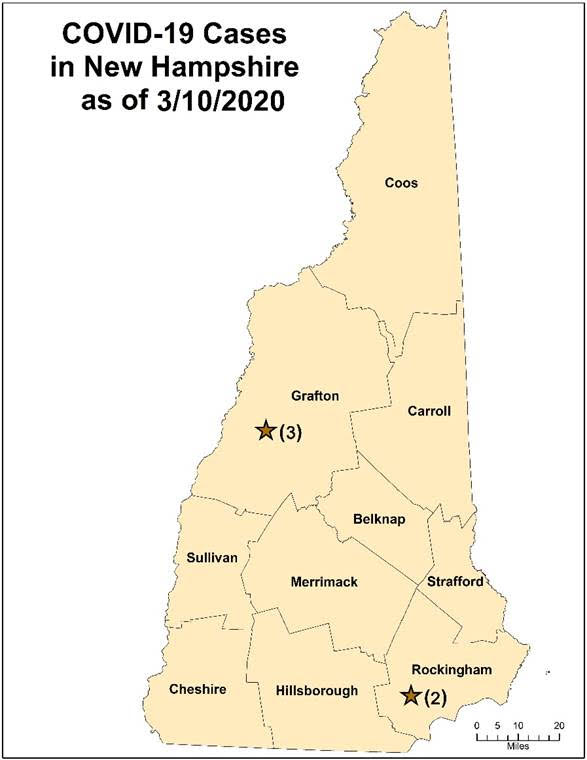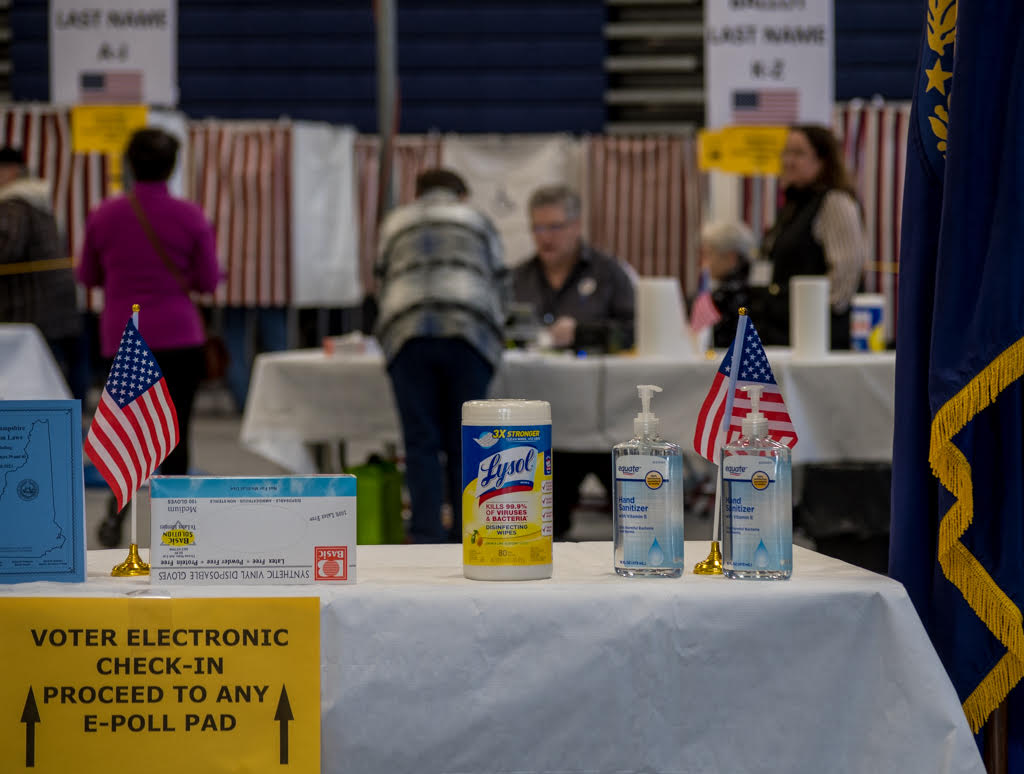By PAULA TRACY, InDepthNH.org
CONCORD – As the state announced its fifth presumptive case of the COVID-19, members of three state Senate committees were briefed on Tuesday on how the state is responding to the global health crisis.
Also across the state at town halls, voters went to the polls with increasing concern about the virus, but there were no reported problems, according to Secretary of State William Gardner.
The latest case of a presumptive positive test result in New Hampshire for COVID-19, the disease caused by the novel coronavirus, is a person who had contact with another individual from Massachusetts who also tested positive.
This person is an adult male who lives in Rockingham County and is self-isolated at home. Any household contacts are self-quarantining.
The Massachusetts Department of Public Health tested and notified the New Hampshire Department of Health and Human Services of the presumptive positive case.
DHHS is conducting an investigation into this person’s activities and has determined he remained at home while ill except to seek healthcare.
Town meetings went ahead across the state in the midst of health-care concerns.
At the Ashland town hall, voting was brisk over a question about buying the old school for about a half-million dollars to replace the aging town library. And there were many dispensers of disinfectant on the table.
Gardner said his office had only fielded a few calls, mostly from people who were angry that they had to go to vote during a healthcare crisis.
The state will notify anyone who may have been in close
contact with this person while infectious.
Health and Human
Services Commissioner Lori Shibinette said a team is working around the clock. “We
respond to test results….in real-time,” Shibinette said.
She said the state has tried to provide consistent messaging and daily updates. On Tuesday, the state opened its joint information center available to all health care partners.
She said COVID-19 is impacting every area of DHHS and asked people to be patient.
“We are working tirelessly to answer everyone’s questions,” she said.
“As we ask people to self-quarantine and self-isolation– it is important for people to trust what we say,” Shibinette said.
Dr. Benjamin Chan, the state epidemiologist, and Beth Daly, incident commander, addressed the Senators with a broad overview of where we are today with the virus which was discovered about two and a half months ago in China.
What’s new and concerning is that it transmits very easily, he said, through droplets within six feet of someone who is infected.
The longer and more intense the contact, the higher the likelihood of transmission, Chan said.
“We’ve seen it move from China to most other countries around the world,” he said.
Travel advisories have changed. There are places of higher risk than others like Italy, South Korea, Japan with broader community transmission but it is not limited to those countries, Chan said.
We are starting to see areas within the United States, like Oregon, California and New York with more sustained community transmission.
Over 50 individuals have been tested in New Hampshire.
Beth Daly, head of the Bureau of Infectious Control, said the state has been preparing for an influenza pandemic for over two decades and this situation is similar.
There are 65 staff members offering 24-7 coverage, she said.
“We know the system is working,” she said.
She said there are now 228 individuals being monitored, up
from 150 on Sunday, asking them to stay home and stay away from others.
State Sen. Jeb
Bradley, R-Wolfeboro, asked if the department has everything it needs for
testing.
Chan said the 200 or so tests the state has are being used up quickly.
For the time being, he said, we it is OK and the state has at least 100 left and has ordered more.
He said personal protective equipment is something he is keeping an eye on but right now hospitals and health care providers have adequate amounts.
Chan said it is too early to tell if this virus will be over at the end of the normal flu season in spring.
Sen. Tom Sherman, D-Rye, asked about gatherings for older adults.
Chan said New Hampshire does not have community transmission yet but the state has the ability to authorize closures of mass gathering events.
“We are not currently at that point yet,” he said.
People with heart disease, lung disease and older than 59 are likely to face a more challenging time dealing with COVID-19.
First, he said, call before going to an emergency room or health-care provider.
He cautioned against people walking in and potentially infecting others without prior notification.
The following suggestions are also given to the public:
– Stay home and avoid public places when sick (i.e. social distancing)
– Cover mouth and nose when coughing and sneezing
– Wash hands frequently
– Avoid being within six feet (close contact) of a person who is sick
-Avoid sharing drinks, smoking/vaping devices, or other utensils or objects that may transmit saliva
– Disinfect frequently touched surfaces
For more information, please visit the DHHS COVID-19 webpage at https://www.dhhs.nh.gov/dphs/cdcs/2019-ncov.htm.






